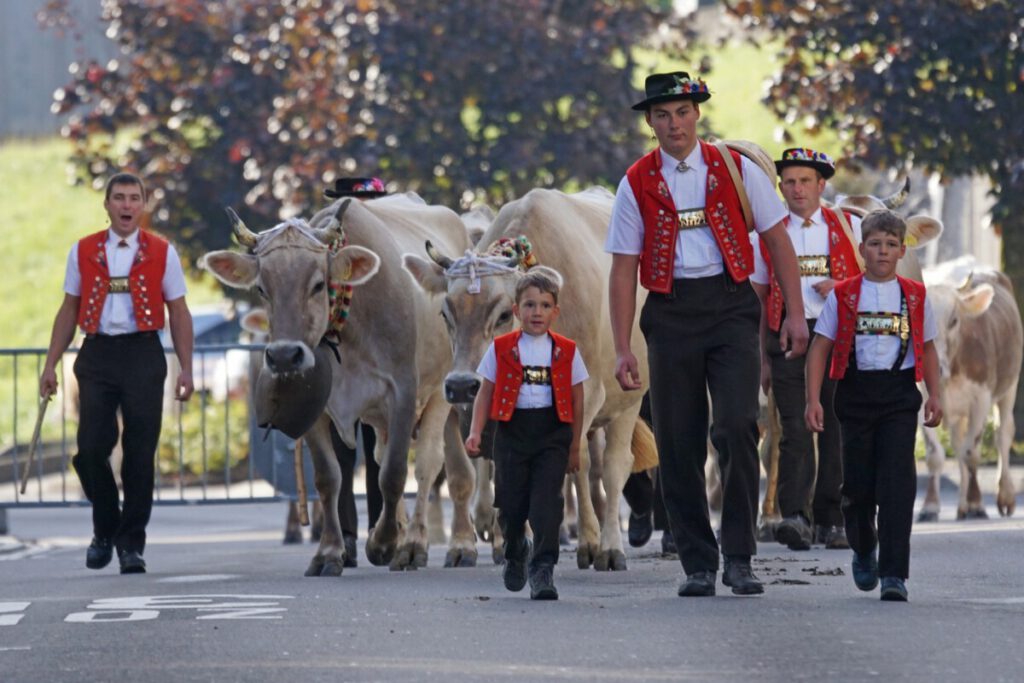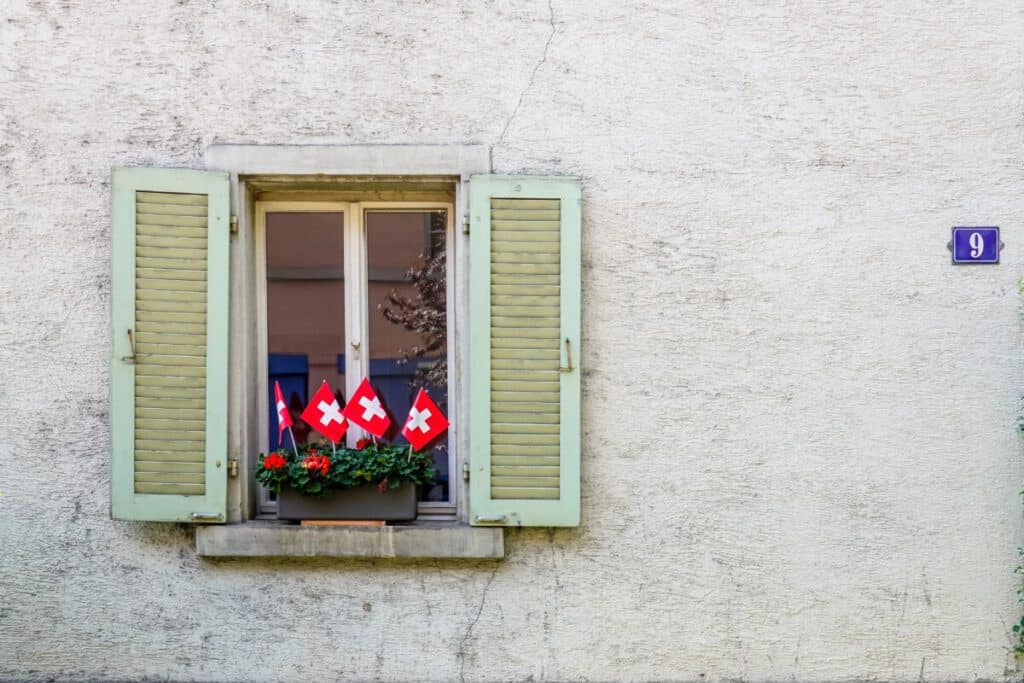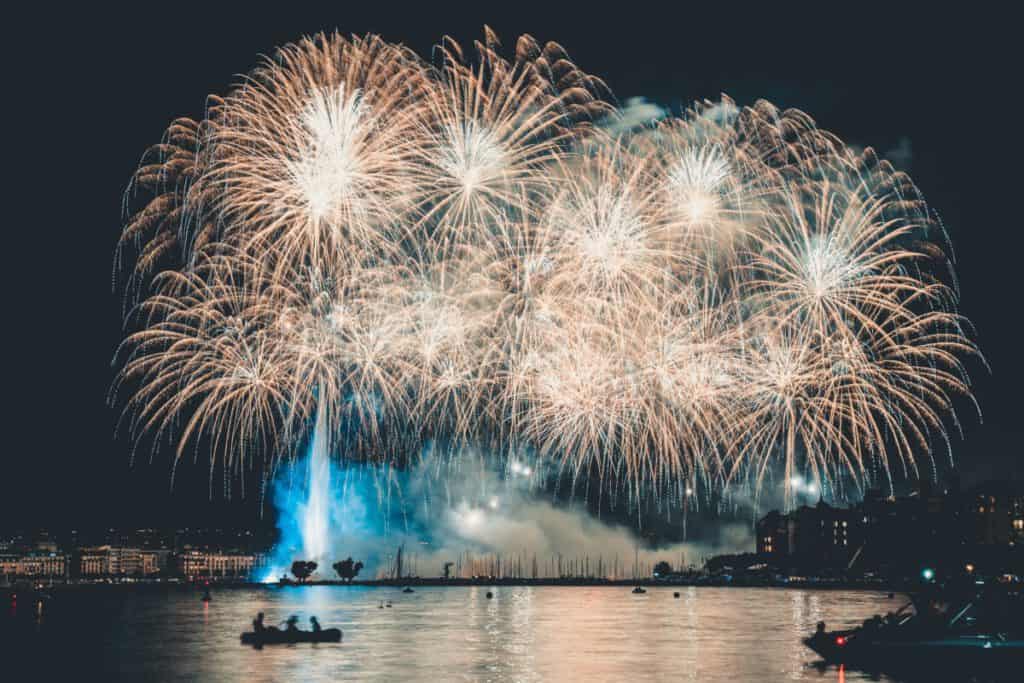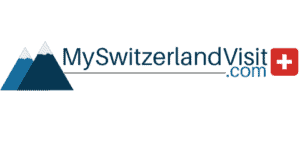In this blog, you will find the public holidays in Switzerland. Important to note down your calendar, and to keep in mind, whether you live in Switzerland or when you are visiting Switzerland. During these days it is common that businesses and public institutions are closed or open on reduced hours.
In this blog post, you will find important Switzerland public holidays but other important dates are mentioned as well. Please always double-check the dates on the official swiss info centre websites.

First: An introduction to Switzerland’s public holidays
The Swiss holidays are general for the whole nation, some religious holidays or more local holidays are only marked in specific cantons and regions in Switzerland. This means, that not all cantons or regions have the same public holidays, so it is important to look at whether your holiday destination has certain public holidays during your visit.
Most public holidays are in cantons where Catholicism is the main religion. The national holidays are strict and this means all shops and public institutions are closed on these days. The first and most important public holiday is the Swiss National Day, which always falls on the first of August. This is the only official federal holiday.
To keep in mind, if the Swiss National holiday(1st of August falls on a Tuesday or a Thursday, it is common for workers to create a long weekend and take Monday or Friday off.
National Public Holidays in Switzerland in 2022
What are the Cantons of Switzerland?
- Zürich ( ZH )
- Bern / Berne ( BE )
- Luzern ( LU )
- Uri ( UR )
- Schwyz ( SZ )
- Unterwalden (Obwalden ( OW ) / Nidwalden ( NW ))
- Glarus ( GL )
- Zug ( ZG )
What are the Regional holidays in the winter in 2022?
| Date and day | Description and places |
| 8 September (Thursday): | Jeune genevois – Geneva |
| 12 September (Monday): | Knabenschiessen – Zurich |
| 18 September (Sunday): | The Federal Fast (Buß-und Bettag), is a federal day of thanksgiving, repentance, and prayer. Regional differences include: Geneva (which celebrates Jeûne genevois on 6 September); stores in Bern, Neuchâtel, Vaud generally close for Bettagsmontag on September 16 (Monday after the third Sunday) |
| 25 September (Sunday): | St Niklaus von Flüe – Obwalden |
| 1 November (Tuesday): | All Saints’ Day (Allerheiligen) – Aargau, Appenzell Innerrhoden, Fribourg, Glarus, Jura, Lucerne, Nidwalden, Obwalden, Schwyz, Solothurn, St Gallen, Ticino, Uri, Valais, Zug |
| 8 December (Thursday): | Immaculate Conception (Maria Empfangnis) –Aargau, Appenzell Innerrhoden, Fribourg, Graubünden, Lucerne, Nidwalden, Obwalden, Schwyz, Solothurn, Ticino, Uri, Valais, Zug |
| 26 December (Monday): | St Stephen’s Day (Stephenstag) – is generally considered a normal working day in Geneva, Jura, Neuchâtel, Valais, Vaud |
| 31 December (Saturday): | Restoration Day – Geneva, a commemoration of the re-establishment of Geneva as a republic in 1813. |
What are the Regional Holidays in Switzerland in 2022?
These regional holidays are only for the Swiss cantons mentioned below.
| Date and day | Description and places |
| 2 January (Sunday): | Berchtold’s Day (Berchtoldstag) – Aargau, Bern, Fribourg, Glarus, Jura, Lucerne, Neuchâtel, Obwalden, Schaffhausen, Solothurn, Thurgau, Vaud, Zug, Zurich |
| 6 January (Thursday): | Epiphany (Heilige Drei Konige) – Graubünden, Lucerne, Schwyz, Ticino, Uri |
| 1 March (Tuesday): | Republic Day – Neuchâtel; this region declared itself a republic and part of Switzerland in 1848 |
| 19 March (Saturday): | St Joseph’s Day (Josefstag) – Graubünden, Lucerne, Nidwalden, Schwyz, Solothurn, Ticino, Uri, Valais |
| 7 April (Thursday): | Näfelser Fahrt (pilgrimage to the battle site) – Glarus |
| 15 April (Friday): | Good Friday (Karfreitag) – all cantons but Ticino and Valais |
| 25 April (Monday): | Sechseläuten (6 o’clock ringing of the bells, third Monday of April) – afternoon only, Zurich |
| 1 May (Sunday): | Labor Day/May Day (Tag der Arbeit) – Basel-Landschaft, Basel-Stadt, Fribourg, Jura, Lucerne, Neuchâtel, Schaffhausen, Solothurn, Thurgau, Ticino, Zurich |
| 6 June (Monday): | Whit Monday or Pentecost Monday (Pfingstmontag) – celebrated depending on the canton and region |
| 16 June (Thursday): | Corpus Christi (Fronleichnam) – Aargau, Appenzell Innerrhoden, Fribourg, Grisons, Jura, Lucerne, Nidwalden, Obwalden, Schwyz, Solothurn, Ticino, Uri, Valais, Zug |
| 23 June (Tuesday): | Jura Independence Day (Fête d’Indépendance) – Jura |
| 29 June (Wednesday): | Saint Peter’s/Paul’s Day – Graubünden, Lucerne, Ticino |
| 15 August (Monday): | Assumption Day – Aargau, Appenzell Innerrhoden, Fribourg, Jura, Lucerne, Nidwalden, Obwalden, Schwyz, Solothurn, St Gallen, Ticino, Uri, Valais, Zug |
What are important dates in Switzerland in 2022 to note down?
| Date and day | Description and places |
| 7–9 March: Carnival; | it is not really a typical official public holiday, this is a widely celebrated Swiss holiday in Switzerland. |
| 27 March (Sunday): | it is not a typical official public holiday, this is a widely celebrated Swiss holiday in Switzerland. |
| 8 May (Sunday): | Mother’s Day (the second Sunday in May) |
| 5 June (Sunday): | Father’s Day (the first Sunday in June) |
| 30 October (Sunday): | Important the clocks go back one hour as a result of daylight saving time (DST) ending. |
The Swiss National Day

When does the Swiss National Day take place?
The Swiss National Day takes place in 2022 on the 1st of August. This is a Monday. This day marks the annual celebration of Swiss National Day.
What is the history behind the Swiss National Day?
It all started with men from the three cantons: Unterwalden, Uri, and Schwyz, “at the beginning of August 1291” swore eternal allegiance to one another, promising mutual help and assistance. The alliance was mainly formed against the Habsburgs, who were striving to strengthen their position in the strategic region leading to the Gotthard Pass at the time.
In 1891 the Swiss National Day was first decided upon, though it took more than a hundred years before the industrious Swiss decided to have a vote and give themselves the day off.
Following the vote in September 1993, the day became an official national holiday in 1994. Interesting fact: the people of Switzerland voted overwhelmingly (86.3%) for a nationwide public holiday on this date.
What happens on Swiss National Day?
August 1st is celebrated quite exclusively within the communities, yes the radio and television broadcast by the President of the Swiss Confederation is the only exception to this esteemed federal principle. Communal celebrations comprise solemn words spoken by a prominent public figure from political or cultural life, accompanied by a concert or choir, gymnastic presentations, and the community singing the national anthem.
Is everything closed on Swiss National Day?
The Bundesfeier is a public holiday in all of Switzerland. Offices, banks, schools, and businesses are closed. Keep in mind during Swiss National Day, public transport runs on a reduced schedule.
Is 1 August, Swiss National Day a public holiday?
Yes, The most important of all holidays in Switzerland is the Swiss National Day, which falls on the first of August every year and in fact, this is the only official federal holiday. So most shops are closed, schools and banks as well.
What do people do on Swiss National Day?
On the first of August, there are celebrations in the communities all around Switzerland. In most cases, the official ceremonies include prayer and the singing of the Swiss national anthem (the Schweizerpsalm). At 8:00 p.m. (20:00) church bells ring throughout the country.
Coming Swiss National days
| The year | Weekday | Date | Name | Holiday type |
| 2022 | Monday | 1 Aug | Swiss National Day | National holiday |
|---|---|---|---|---|
| 2023 | Tuesday | 1 Aug | Swiss National Day | National holiday |
| 2024 | Thursday | 1 Aug | Swiss National Day | National holiday |
| 2025 | Friday | 1 Aug | Swiss National Day | National holiday |
| 2026 | Saturday | 1 Aug | Swiss National Day | National holiday |
How do you say Happy Swiss National Day?
When visiting Switzerland during the day, they celebrate Swiss National Day, it is nice to be able to say Happy Swiss National Day: “Ich wünsche dir einen schönen Bundesfeiertag!“
What is the Swiss National Anthem called?
The Swiss National Anthem is called: the Swiss Psalm. The first Swiss national anthem was “Rufst du, Mein Vaterland ” (When you call us, Fatherland), written in 1811 by Johann Rudolf Wyss and sung to the tune of the British national anthem “God Save the Queen”. The current anthem, referred to as the ‘Swiss Psalm’, was first performed in 1841.
Are there fireworks on Swiss National Day?

Yes, Swiss National Day has been an official holiday since 1994, following the acceptance of a federal popular initiative in its favour in 1993. On 1 August, Swiss National Day, this is is celebrated each year with paper lantern parades, bonfires, hanging strings of Swiss flags, and fireworks. This looks beautiful if the sky is clear.
Conclusion
In this blog, you can find all the information about important festive or national dates in Switzerland. There are quite some days when Swiss people lay down their work and take some time to celebrate or to commemorate.
It can be to your advantage to take into account these days because for example banks or restaurants can be closed during these days. We wish you a nice holiday in Switzerland!🇨🇭
